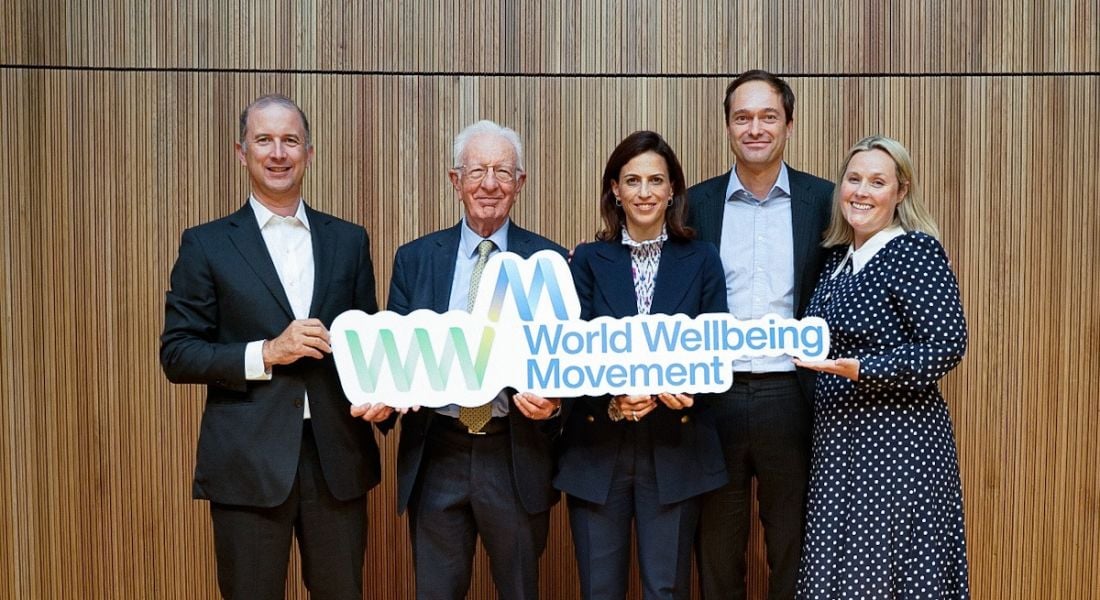A new coalition of leaders believes wellbeing could become one of the ‘single most important’ measurements in employers’ ESG goals.
While employee wellbeing has always been an important consideration for companies, the Covid-19 pandemic has thrown it into the spotlight more than ever before.
According to a 2021 CSO report, almost 60pc of people surveyed in Ireland said their mental health had suffered significantly during the pandemic. Other statistics highlighted increased burnout and a struggle to switch off while working remotely.
Now, a new coalition of global leaders from business, civil society and academia has formed to help put wellbeing at the heart of decision-making in both business and public policy.
Launching today (8 July) as part of the Wellbeing Research and Policy Conference at the University of Oxford, the World Wellbeing Movement (WWM) counts leading companies such as Indeed, Uniliver, McKinsey, Cisco and S&P among its founding members.
The movement will be led by managing director Sarah Cunningham, who was previously vice-president at Mastercard’s technology hub in Dublin.
“There can hardly be a more important goal, for business leaders and public policymakers alike, than the wellbeing of people. And, indeed, evidence shows that workplaces with higher employee wellbeing, and countries with higher citizen wellbeing, are seen as more attractive to work at and live in,” she said.
“That’s why I am so excited to bring the World Wellbeing Movement’s mission to life, and to partner with our trailblazing co-founders, who include Prof Lord Richard Layard, Prof Jan-Emmanuel De Neve and Snam.”
The movement aims to promote a universally acceptable standard for measuring wellbeing as a key environmental, social and governance (ESG) indicator and share best practices into how to improve wellbeing.
Layard, one of the co-founders and emeritus professor of economics at the London School of Economics, said the goal of wellbeing “has become a really practical objective”. Speaking at the launch of WWM, he implored the audience: “Let’s put wellbeing first.”
Layard then introduced Marco Alverà, CEO of TES-H2, who said teams that feel good outperform those that don’t. “Employees simply won’t show up if they don’t feel good about it.” He also added that the concept of using metrics outside of the financial arena is here to stay.
Using metrics for wellbeing
While many employers have made wellbeing a key objective, WWM’s goal to bring wellbeing into ESG goals could add a more transparent metric to it.
Just as emissions have become the flagbearer of the environmental aspect in ESG, WWM said wellbeing could become “the single most important measurement” of the social element and a much-needed standardised metric.
Speaking to SiliconRepublic.com, Cunningham said she believes there is “no more important goal” for leaders and public policymakers than the wellbeing of people.
“In the last few years particularly, and with the impact of the pandemic, more and more companies are taking accountability for supporting their employees’ mental health and wellbeing,” she said.
“Thanks to recent research from the World Wellbeing Movement’s academic partner at the University of Oxford, we finally have causal field evidence that a focus on employee wellbeing is not just the right thing to do, but it also comes with a compelling business case.”
Oxford research conducted in partnership with BT found that employees are 13pc more productive when happy.
Additionally, a 2021 study commissioned by Indeed and conducted by Forrester Consulting found that 42pc of people surveyed believe expectations around work happiness have increased over the last five years.
“When it comes to ESG reporting, the ‘E’ or environmental component has become well defined, as has the ‘G’ or governance component. But the ‘S’, which aims to measure the social impact of organisations, is not only less well defined, but it’s also woefully undermeasured,” said Cunningham.
10 things you need to know direct to your inbox every weekday. Sign up for the Daily Brief, Silicon Republic’s digest of essential sci-tech news.




